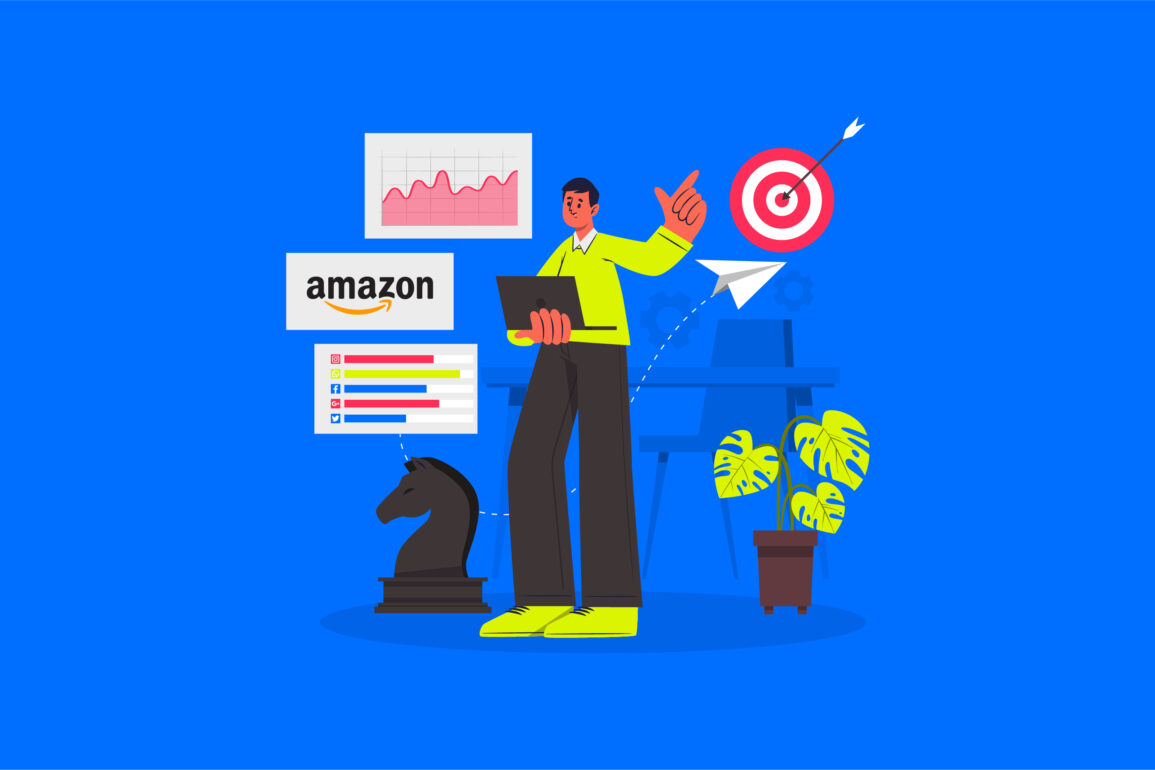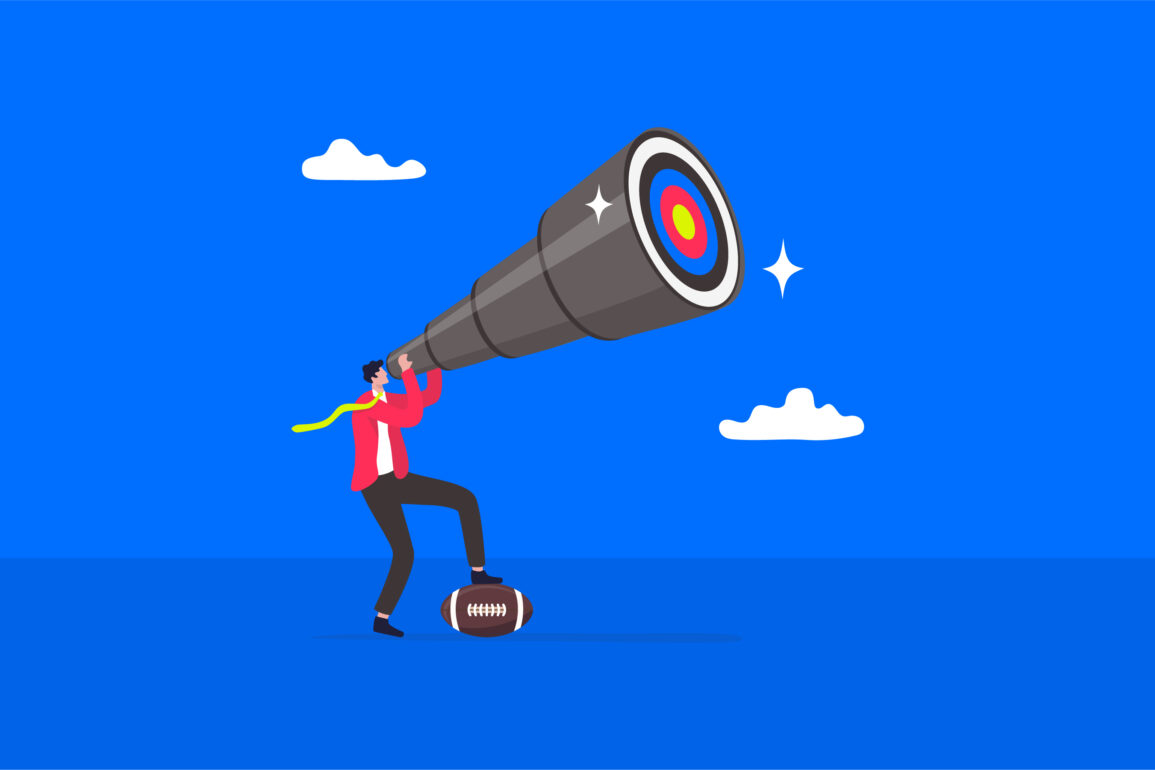Marketing vs business development: The key differences

Marketing vs business development: what’s the difference? On the surface, both marketing and business development teams work towards the same goal – the growth of a company. However, the activities of these groups are a little different.
In most companies, learning how to properly identify the skillsets in your team, and assign tasks to the correct people is crucial to success. Unfortunately, the overlap between business development and marketing means the two terms are often used interchangeably.
If you want to make sure you’re leveraging your talent correctly for successful business promotion, learning the true job description for your team members is a good way to start. Here’s what you should know about the difference between marketing and business development.

Marketing and business development: What is marketing?
To better understand the difference between business development and marketing, we need to first define both ideas.
Marketing is a relatively straightforward and familiar concept for most business owners. It refers to the art of promoting your key differentiators to your target audience, through the development of a specific series of messages and images.
Through a variety of techniques, companies use marketing to position their company within a specific industry, highlighting themselves as affordable, customer-focused, or luxurious.
Marketing also helps to capture attention, so you can improve your business traffic, and it provides your customers with valuable information about who you are and what you do.
The focus of marketing is your consumer, and the journey they take from the “awareness” point in the sales funnel, through to the moment they’re advocating for your brand as loyal clients.
While most people simply label marketing as a tool for “increasing sales”, it actually serves a number of crucial purposes, from identifying customer needs, to building a relationship with your audience.
Some of the capabilities of marketing include:
Awareness and reach
Capturing customer attention through carefully-crafted campaigns on a variety of platforms, like your website blog, your email campaigns, social media, television advertisements, podcasts, and offline marketing.
Information and education
Marketing provides customers with the information they need to make a purchasing decision. The main focus of the informative content in a marketing campaign is to demonstrate the benefits of your product or service.
Audience engagement
Through the use of emotions like excitement or interest, marketing encourages your audience to engage with your business and learn more about what you can do. This starts an interaction between your brand and customer.
What do marketing professionals do?
Marketing experts play a number of roles within the business landscape – depending on the kind of specialist they are. Today, marketing is such a complex and multi-faceted concept, it often requires an entire team of professionals working on it at once.
You may have one dedicated part of your team working on social media marketing, while someone else works on email, or offline marketing. Aside from creating engaging and eye-catching campaigns, marketing professionals also need to invest a lot of time into reporting, analytics, research, and development.
Some of the tasks a marketing team may need to do include:
- Identifying the customer: Marketing professionals can work with companies to help create brand personas and target audience guidelines.
- Building strategies: Experts in marketing can design marketing campaigns based on the interests of your target audience, and where they spend their time.
- Scheduling: Marketing experts can guide companies on when to publish certain marketing campaigns, and where to begin promotion.
- Highlighting USPs: These professionals are experts in demonstrating the unique value of your business and what makes you special.
- Branding: In some cases, marketing professionals will work with branding experts to help define how the business should be showcased on a wider scale.
- Customer experience: Marketing teams help to have an impact on the initial interaction between companies and customers.
Most marketing professionals report to a “CMO” or Chief Marketing Officer. In today’s rapidly-evolving workplace, marketing experts can either be in-house team members, contractors, or freelancers.

Business development vs marketing: What is business development?
So, in the discussion of business development and marketing, marketing is all about understanding who your audience is, and presenting your company to them correctly. Business development, on the other hand, focuses exclusively on the art of business growth.
Business development is about making connections, building on the brand you’ve already established through your marketing efforts to connect your audience to your services and products.
Though it might sound similar to marketing, business development ignores a lot of the components of marketing like audience research and building brand awareness. Instead, this practice concentrates specifically on the art of generating new business and relationships.
A business development leader might engage in events and networking experiences to learn more about the target market and make connections which help to grow the company on a foundational level.
They look for opportunities for business expansion, by evaluating new markets, and discovering new ways to connect with your existing audience.
While some business development experts are involved with both business development and marketing, other companies keep these practices separate. While marketing professionals are working on making your audience aware of, and interested in your brand, business development team members are facilitating conversions.
In a lot of ways, business development teams are made up of salespeople. They go out of their way to develop business and build relationships. Though there’s certainly overlap with marketing here, business development is a far more focused practice.
What do business development professionals do?
Business development experts aren’t interested in showcasing your brand personality or creating social media campaigns. Instead, these individuals take the information collected by your marketing teams, and the assets created by your designers, and use them to make conversions happen.
They evaluate competitor developments and look for opportunities to create strategic business partnerships.
Business development usually begins after a marketing plan is already in place. These teams often work hand-in-hand with sales teams to determine where essential relationships need to be built for the benefit of the company.
The process involves everything from interacting with connections at trade shows, to developing opportunities in new markets.
A successful business development professional needs to possess a number of crucial skills and traits, including understanding industry dynamics, managing time effectively, and making personal connections.
The job of a business development manager may involve spending a lot of time at the “front of the company”, helping to develop and apply an effective strategy for sales. Their overall goal will be to drive and ensure sustainable financial growth, by forging strong relationships with clients.
These professionals are most commonly involved in B2B companies, where it’s important to forge in-depth relationships with customers for repeat sales.

The difference between marketing and business development
It’s easy to see where people get confused when defining marketing and business development. Both activities are about connecting with customers and opening new doors to opportunity for your business.
However, there are some significant differences.
Business development focuses on the creation of crucial relationships and partnerships, through sales techniques, and careful strategy. Business developers use the research and assets of the marketing team, but they also leverage sales techniques too.
These professionals are more commonly utilized in B2B environments, because the business to business selling journey requires deeper relationships.
Marketing, on the other hand, applies to all business structures, from B2C to B2B. Marketing professionals focus on communication, consumer targeting, and the overall development of a specific brand reputation.
Marketing teams are responsible for learning about the industry and creating messaging which speaks to a specific audience. Though these professionals may also work with sales teams, they usually only do so to collect research.
The marketing department has its thumb on the pulse of the market, helping to align the messaging of the company to the expectations and needs of its audience. Elsewhere, sales teams help to deliver messaging to the customer, and adjust that content to ensure conversions.
Business development lies somewhere between marketing and sales. These professionals build on the foundation marketing lays, creating a pathway for opportunity, while also developing critical relationships.
Business development managers also use sales and marketing collateral to achieve essential growth goals.
Where do business development and marketing overlap?
Though not the same thing, business development and marketing have a lot of crucial connection points. The sales cycle in many environments – particularly the B2B space – is more complex than ever.
This means various business development, sales, and marketing professionals need to work together to achieve success.
For the most part, companies will usually discover they don’t need a specific “business development” or “marketing campaign” individually – but a combination of:
Sales
For finding new customers, increasing customer value, and ensuring ongoing business profit by closing multiple deals.
Marketing
To identify who the target customer is and develop communication methods focused on reaching potential clients and setting them on the journey towards a sale. The marketing team essentially rolls out the red carpet for leads.
Business development
For building on, improving, and leveraging the relationships and opportunities crucial to the business. These professionals make the most of potential revenue development, forming the bridge between brand introduction, to brand advocacy.
Every department works in alignment, often sharing assets and crucial content, to ensure the strategy of the business delivers results.
Combining marketing and business development
While some companies mistakenly identify business development and marketing as one and the same, others differentiate the two, but fail to coordinate them. This is usually a problem which develops when gaps form between the sales and marketing parts of a company.
The key to success in most organizations isn’t deciding whether you need a marketing professional or a business development expert – but figuring out how to align both as effectively as possible.
When aligned correctly, the following activities are coordinated and optimized between both departments:
Business strategy and planning
The development of marketing and sales strategies built around a shared knowledge of the market, your company, and your audience.
Messaging
Marketing teams, sales professionals, and business development experts should all use the same consistent voice to communicate with leads and prospects.
Unique selling points
The USPs highlighted in sales and marketing messages should align to build the credibility of a brand and show its benefits.
Content
Assets created by marketing teams, from articles and blog posts to webinars and videos, should support the business development team, and respond to findings about what customers need from business development relationships.
Hosted events
Marketing can handle the coordination and promotion of events for building brand relationships, while business development deals with the outreach.
Client feedback
Both marketing and business development should be constantly aware of the voice of the customer and the comprehensive customer journey.
Let’s take a close look at how the brand/consumer journey should look when you have an aligned and unified marketing and business development team:
Step 1: Market research
To start, any successful sales and marketing strategy requires extensive market research. Marketing professionals are often the team responsible for in-depth insights into your target audience. They’ll work with the sales team to develop their knowledge of which kind of leads are most likely to convert into customers.
Through this extensive market research, it’s possible to build user personas.
User or buyer personas are essentially the guidelines you use to create all of your marketing messaging. These tools will also be extremely useful when you’re deciding what kind of products to design next, or what sort of language to use in sales strategies.
Step 2: Creating meaningful messaging
Once you know your target audience, you can begin looking into on-point messaging solutions. Your marketing team once again is mostly responsible for this part of the customer journey.
Using their knowledge of your target audience, they’ll be able to design messaging perfectly suited to your customer’s tone of voice. Using the right language is essential to attracting and converting leads.
Notably, while marketing teams are on the foundational level of messaging creation, they will generally work with business development teams later on to strengthen their content based on what they learn from business development relationships.
Similarly, business development teams will often use and adapt the messaging created by the marketing team to nurture leads more effectively.
Step 3: Developing sales opportunities
Understanding your audience and designing amazing marketing campaigns is an important part of growing any business. However, simply attracting customers to your company with the right messaging is only one part of the journey.
Marketing can’t convert leads on its own – it needs support from sales and business development.
Working together, the two departments can ensure the right solutions are in place to attract and convert potential customers. Sales should be using marketing teams for analysis of the market, so they can begin to understand the leads that come their way.
Once marketers bring people to the company, business development professionals and sales teams can begin building relationships and implementing conversion opportunities.
Step 4: Develop customer relationships
While sales professionals focus exclusively on converting the leads from a marketing campaign into consumers, business development teams are focused on more long-term relationships.
These experts work mostly in B2B environments, and for companies keen to develop deeper connections with their target audience. They work on gradually nurturing and converting customers over time.
Business development experts maintain a close focus on your target audience and their needs, implementing strategies to ensure long-term brand growth.
Through this concentration on customer relationships, it’s also possible for business development teams to generate a better understanding of the target audience, allowing for improved customer personas over time.
Step 5: Constantly adapt and grow
Ultimately, the long-term goal of bringing marketing and business development teams together, is to create a comprehensive environment for understanding, nurturing, and attracting potential customers.
With a combined set of sales, development, and marketing teams in your company, you can usually benefit from more consistent messaging, positioning, and sales campaigns.
Marketing and business professionals working together also get a more complete view of the entire customer journey. This makes it easier to thoroughly understand how certain strategies work to increase your chances of conversions.
A firm with a comprehensive understanding of both marketing and business development functions can combine the two for a better chance of success.

Which is more important: Marketing or business development?
Hopefully, if you’ve been paying attention through the course of this article, you’ll know there’s no real answer to this question. One department (marketing or business development) isn’t necessarily better or more valuable than the other.
Rather, the two entities often need to work together to generate the best possible outcomes for any business.
Business development departments work with marketing on a day-to-day business. While marketing experts are responsible for getting to know the market and developing messaging strategies to reach your audience, business development teams build essential relationships.
Both work together to define your customers or target audience more effectively, and both need an in-depth overview of the customer journey.
Marketing and business development teams also regularly work hand-in-hand with sales to increase the overall conversions of the company and determine what kinds of pain points and challenges customers most want to overcome.
In many companies, sales and marketing professionals are also led by the same business manager. The Chief Marketing Officer or “CMO”, facilitates the activities of the teams from day one. Hopefully, the CMO will also help to align the different teams to ensure they work together more effectively.
A good CMO will enable consistent communication from the planning and strategy stage of marketing and brand development to the sales nurturing and conversion point.
The more aligned the various teams, the more confident your company will be when it comes to building brand loyalty and achieving repeat purchases.
Mastering marketing and business development
Notably, every marketing and sales team is different. Depending on the nature of your business, you may have different sales strategies and advertising efforts to think about.
You might even decide to avoid using business development experts unless you run the kind of B2B business which demands long-term relationship development.
However, if you find yourself in a position where you need both marketing and business development, try not to underestimate either one. Both of these groups are crucial to your overall team, and the success of your company.
Fabrik: A branding agency for our times.











